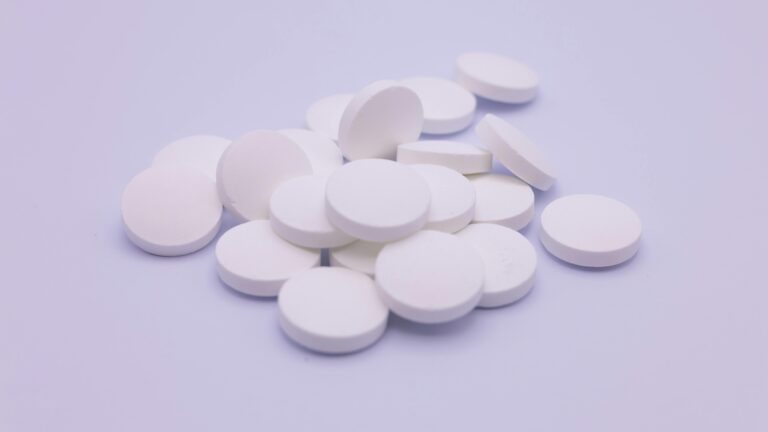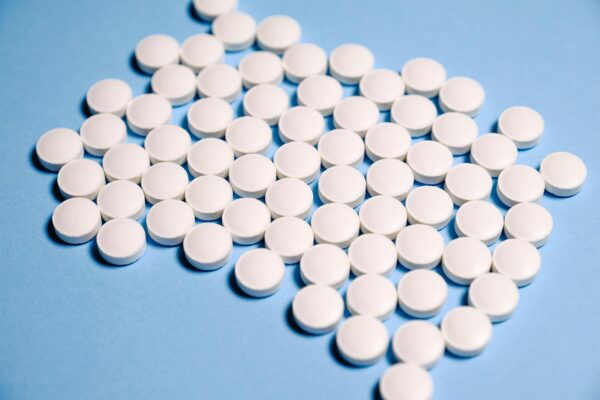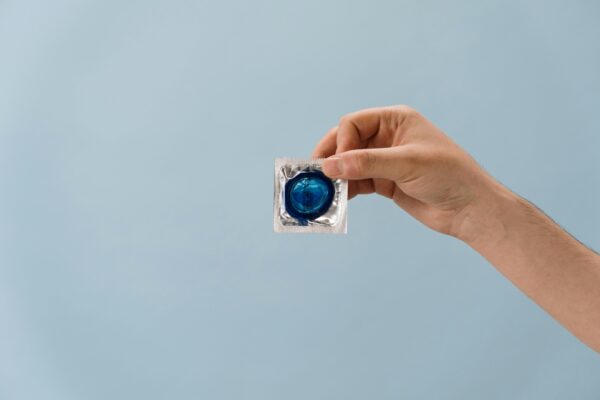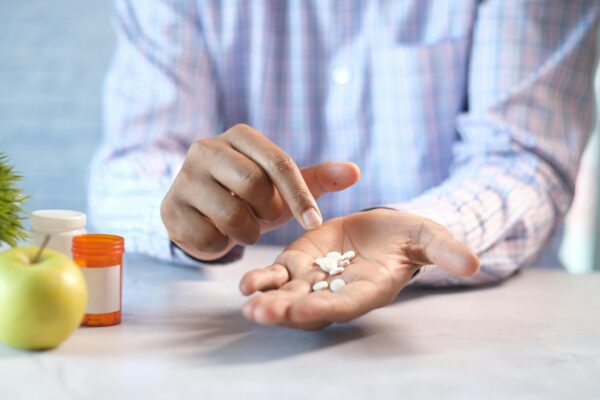When it comes to maintaining peak performance in all aspects of life, including the bedroom, every guy wants to feel confident and in control. But what happens when the meds you’re taking for your heart or anxiety throw a wrench in the works? Enter propranolol, a beta-blocker with a reputation for helping hearts but occasionally complicating matters below the belt. Let’s dive deep into the relationship between propranolol and erectile dysfunction (ED), so you can make informed choices.
- What Is Propranolol, and Why Is It Prescribed?
- Can Propranolol Cause Erectile Dysfunction?
- Signs That Propranolol Might Be Affecting Your Bedroom Performance
- Are All Beta-Blockers the Same?
- Managing Erectile Dysfunction While on Propranolol
- Why You Shouldn’t Stop Taking Propranolol Without Medical Advice
- Propranolol Alternatives for Better Sexual Health
- The Psychological Impact of ED and How to Cope
- Final Thoughts: Balancing Heart Health and Sexual Wellness
- Studies and Research on Propranolol and Erectile Dysfunction
- Sources for Further Reading
- FAQs: Propranolol and Erectile Dysfunction
- Question: Can propranolol cause erectile dysfunction?
- Question: How does propranolol cause erectile dysfunction?
- Question: What can I do if I experience erectile dysfunction on propranolol?
- Question: Are there alternatives to propranolol that do not cause erectile dysfunction?
- Question: Is it safe to stop taking propranolol to avoid erectile dysfunction?
What Is Propranolol, and Why Is It Prescribed?
Propranolol is a beta-blocker, a class of drugs designed to manage various cardiovascular conditions. If your doctor has prescribed propranolol, it’s likely because you’re dealing with one or more of the following:
- High blood pressure (hypertension)
- Irregular heartbeats (arrhythmias)
- Angina (chest pain)
- Post-heart attack recovery
- Migraine prevention
- Anxiety or performance-related stress
Propranolol works by blocking the effects of adrenaline on your heart and blood vessels, effectively slowing your heart rate and reducing blood pressure. While that’s great news for your ticker, it may not be so welcome news for your sex life.
Can Propranolol Cause Erectile Dysfunction?
Here’s the straight talk: propranolol has been associated with erectile dysfunction in some men. But before you panic, let’s break down how this happens.
How Beta-Blockers Like Propranolol Impact Sexual Performance
Beta-blockers like propranolol can interfere with your body’s ability to maintain an erection in several ways:
- Reduced Blood Flow: Erections require strong blood flow to the penis. By lowering your heart rate and blood pressure, propranolol might indirectly reduce the blood flow needed for a solid erection.
- Dampened Nerve Signals: Propranolol can decrease the sensitivity of nerve endings, making it harder to respond to arousal.
- Lower Libido: Some men report a noticeable drop in sexual desire while on propranolol.
While propranolol doesn’t affect every man in the same way, these side effects are worth discussing, especially if your sex life has taken a hit.
Signs That Propranolol Might Be Affecting Your Bedroom Performance
How can you tell if propranolol is the culprit? Look for these signs:
- Difficulty achieving or maintaining an erection.
- Decreased sexual desire.
- Longer recovery time between erections.
If these issues started after you began taking propranolol, it’s a good indicator that the medication might be playing a role.
Are All Beta-Blockers the Same?
Not all beta-blockers are created equal. Some, like propranolol, are non-selective, meaning they block beta receptors throughout the body. Others, like atenolol and metoprolol, are cardioselective, targeting primarily the heart.
Research suggests that cardioselective beta-blockers may have fewer sexual side effects than non-selective ones like propranolol. If ED is a persistent issue, switching to a different beta-blocker might be worth discussing with your doctor.
Managing Erectile Dysfunction While on Propranolol
If propranolol is putting a damper on your sex life, don’t worry. You’ve got options. Here’s what you can do:
1. Talk to Your Doctor
Don’t suffer in silence. Your doctor can help you weigh the benefits of propranolol against its side effects. They might:
- Adjust your dosage.
- Switch you to a different medication.
- Add a treatment specifically for ED, such as a PDE5 inhibitor (e.g., sildenafil or tadalafil).
2. Prioritize a Healthy Lifestyle
A healthy lifestyle can counteract some of propranolol’s side effects. Focus on:
- Exercise: Regular physical activity improves blood flow and boosts libido.
- Diet: A heart-healthy diet (think leafy greens, lean proteins, and whole grains) supports vascular health.
- Stress Management: Since propranolol is often prescribed for anxiety, finding additional ways to manage stress can enhance your overall well-being.
3. Consider ED Treatments
Over-the-counter and prescription options can help mitigate ED, including:
- Oral medications like Viagra (sildenafil) or Cialis (tadalafil).
- Vacuum erection devices to improve blood flow.
- Psychological counseling if performance anxiety is a contributing factor.
Why You Shouldn’t Stop Taking Propranolol Without Medical Advice
While ED can be frustrating, stopping propranolol abruptly can be dangerous. Sudden withdrawal can lead to:
- Rebound hypertension (a sudden spike in blood pressure).
- Increased risk of heart attack or stroke.
Always consult your doctor before making any changes to your medication regimen.
Propranolol Alternatives for Better Sexual Health
If propranolol isn’t playing nice with your bedroom life, ask your doctor about alternatives:
- ACE Inhibitors: These blood pressure medications (e.g., lisinopril) don’t typically cause ED.
- ARBs (Angiotensin II Receptor Blockers): Medications like losartan may even improve sexual function in some men.
- Cardioselective Beta-Blockers: Metoprolol or bisoprolol may have fewer sexual side effects.
The Psychological Impact of ED and How to Cope
Let’s face it—ED doesn’t just affect your body; it messes with your head. Many men feel embarrassed or even ashamed, which can lead to a vicious cycle of performance anxiety.
Here’s How to Keep Your Confidence Intact:
- Communicate: Talk openly with your partner about what’s happening.
- Stay Positive: Remember, ED is often temporary and treatable.
- Seek Support: Whether it’s a doctor, therapist, or close friend, don’t hesitate to ask for help.
Final Thoughts: Balancing Heart Health and Sexual Wellness
Propranolol is a game-changer for heart health, but it can sometimes complicate matters in the bedroom. The good news? You’re not stuck. By working closely with your doctor and making some lifestyle adjustments, you can reclaim your confidence and enjoy a fulfilling sex life while staying on top of your health.
Remember, your health—both physical and emotional—is worth prioritizing. So, take charge, ask questions, and explore all your options. You’ve got this, man!
Studies and Research on Propranolol and Erectile Dysfunction
Here are some key studies and sources that explore the connection between propranolol and erectile dysfunction. These studies provide a deeper understanding of how beta-blockers like propranolol can impact sexual function, offering insights into the underlying mechanisms.
1. Study on Beta-Blockers and Sexual Dysfunction
- Title: Effects of Beta-Blockers on Sexual Function
- Authors: W. R. S. Lavi et al.
- Published In: Journal of Clinical Pharmacology
- Summary: This study discusses how various beta-blockers, including propranolol, can lead to sexual dysfunction in men, with a focus on erectile difficulties. The research highlights the potential side effects and their frequency.
- Link: PubMed – Journal of Clinical Pharmacology
2. Propranolol and Erectile Dysfunction: A Clinical Review
- Title: Propranolol and Erectile Dysfunction: An Overview of Mechanisms and Management
- Authors: L. J. Tissot et al.
- Published In: International Journal of Impotence Research
- Summary: This review examines the biological mechanisms by which propranolol affects erectile function, including its impact on blood flow, hormone regulation, and nerve sensitivity. It also discusses possible treatment options to counteract these effects.
- Link: Nature – International Journal of Impotence Research
3. The Role of Propranolol in Erectile Dysfunction
- Title: The Influence of Propranolol on Erectile Function in Men with Hypertension
- Authors: D. R. Kachur et al.
- Published In: The American Journal of Hypertension
- Summary: This study specifically addresses the relationship between high blood pressure treatment with propranolol and sexual dysfunction in men, with findings suggesting a noticeable link between the medication and ED symptoms.
- Link: The American Journal of Hypertension
4. Cardiovascular Medications and Sexual Dysfunction
- Title: Impact of Cardiovascular Medications on Sexual Function in Men
- Authors: A. M. Hayat et al.
- Published In: British Journal of Urology International
- Summary: This paper reviews multiple cardiovascular medications, including propranolol, and their association with sexual health, exploring both direct and indirect effects on erectile function.
- Link: BJUI – British Journal of Urology International
Sources for Further Reading
For additional research and information on propranolol and its effects on erectile dysfunction, check out the following resources:
- Mayo Clinic – Propranolol (Oral Route) Side Effects
Overview of potential side effects of propranolol, including its impact on sexual health.
Mayo Clinic – Propranolol Side Effects - WebMD – Propranolol
Detailed information on propranolol’s uses, side effects, and alternative medications.
WebMD – Propranolol - American Urological Association – Erectile Dysfunction
Learn more about the causes of ED, its treatment options, and the impact of various medications.
American Urological Association - National Institutes of Health (NIH) – Erectile Dysfunction Overview
A comprehensive guide to understanding erectile dysfunction, including medical conditions and medications that can affect sexual function.
NIH – Erectile Dysfunction - Harvard Health – Sexual Health and Medications
A detailed resource from Harvard Medical School on the effects of medications like propranolol on sexual health.
Harvard Health – Medications and Sexual Health
By delving into these studies and resources, you’ll gain a more comprehensive understanding of the relationship between propranolol and erectile dysfunction, helping you make informed decisions about your health.
FAQs: Propranolol and Erectile Dysfunction
Question: Can propranolol cause erectile dysfunction?
Yes, propranolol has been associated with erectile dysfunction in some men. It can affect blood flow, nerve sensitivity, and libido, leading to difficulties in achieving or maintaining an erection.
Question: How does propranolol cause erectile dysfunction?
Propranolol works by lowering heart rate and blood pressure, which can reduce blood flow to the penis. This decreased blood flow, combined with possible reduced sensitivity and lower libido, may contribute to erectile dysfunction.
Question: What can I do if I experience erectile dysfunction on propranolol?
If you notice ED symptoms, it’s important to talk to your doctor. They may suggest adjusting the dose, switching to a different medication, or adding ED treatments like sildenafil or tadalafil to improve sexual function.
Question: Are there alternatives to propranolol that do not cause erectile dysfunction?
Yes, alternatives such as cardioselective beta-blockers (e.g., metoprolol or atenolol), ACE inhibitors, or ARBs may have fewer sexual side effects while still managing blood pressure and heart health effectively.
Question: Is it safe to stop taking propranolol to avoid erectile dysfunction?
Never stop taking propranolol without consulting your doctor. Abruptly discontinuing the medication can lead to serious complications, such as rebound high blood pressure and increased risk of heart attack or stroke.
Disclaimer: This article is for informational purposes only and should not replace professional medical advice. Always consult with a healthcare provider before starting any new treatment.





